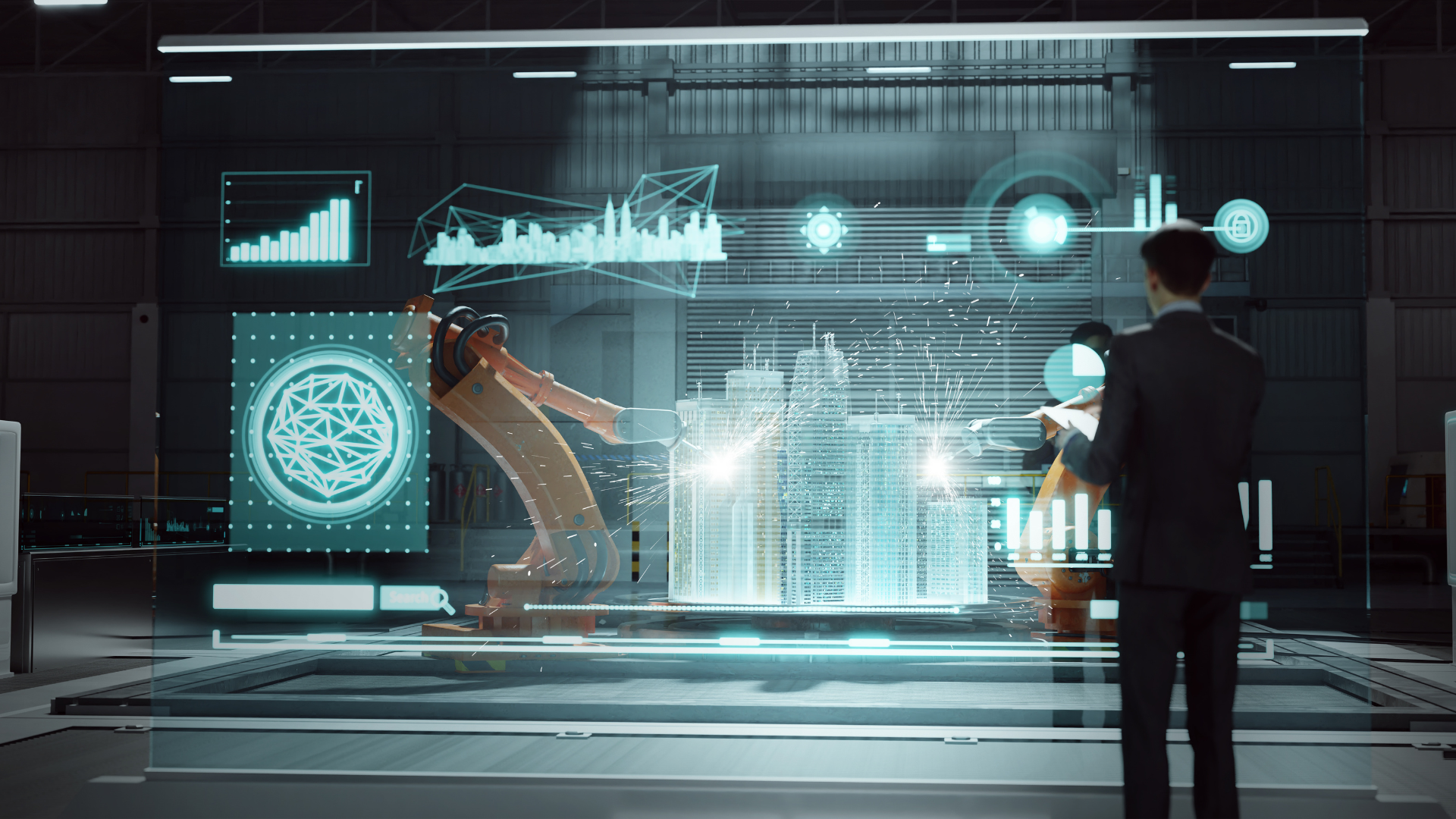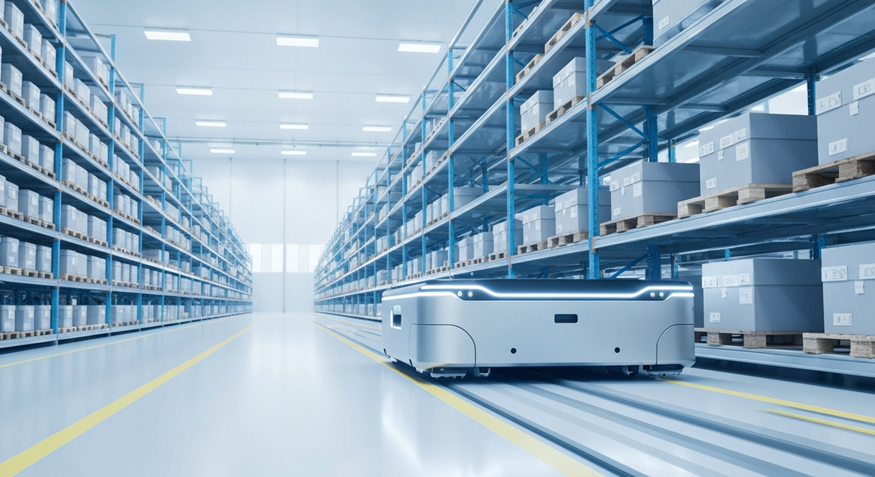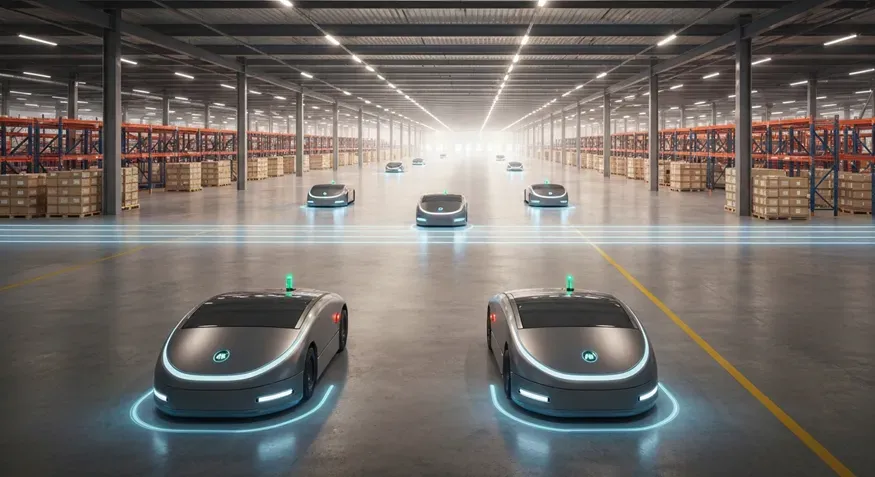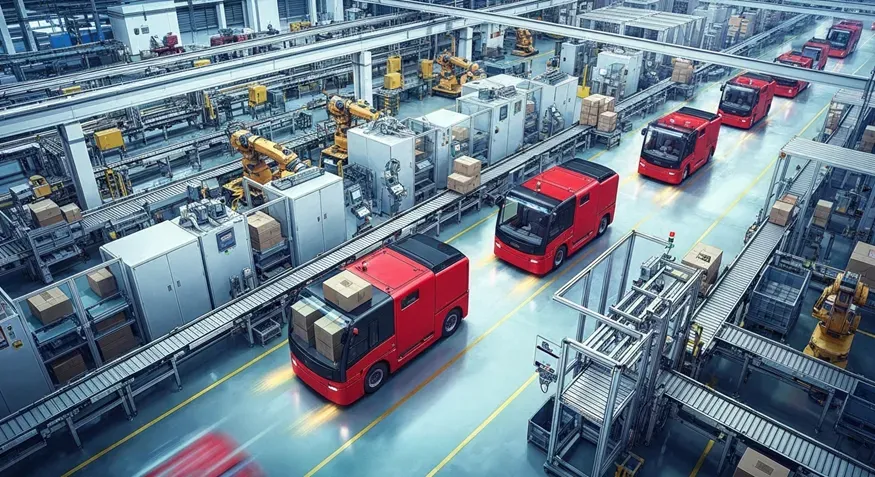What Is An Example Of An IR 4.0 Product?
What Is An Example Of An IR 4.0 Product?
One of the prime examples of a product that exemplifies the concept of Industry 4. 0, also known as IR 4. 0, is a sophisticated smart home system. This cutting-edge technology seamlessly combines a multitude of devices and appliances, such as lighting systems, security cameras, thermostats, and entertainment systems to create an interconnected and highly automated living environment. By integrating these devices into one cohesive system, homeowners can enjoy the convenience of controlling various aspects of their home with just a few taps on their smartphone or through voice commands. This not only enhances the overall living experience but also offers increased energy efficiency and improved security measures for individuals seeking a modern lifestyle that aligns with the advancements of the fourth industrial revolution. This system utilizes technologies such as Internet of Things (IoT), artificial intelligence, and data analytics to enhance convenience, efficiency, and security in the home.
Advantages and Disadvantages of Fourth Industrial Revolution
The Fourth Industrial Revolution, also known as IR 4. 0, brings forth a myriad of advantages that have the potential to transform industries and economies in profound ways. One significant advantage is the notable increase in productivity that IR 4. 0 brings about. With advanced automation and smart technologies at its core, this revolution streamlines processes and optimizes operations, enabling companies to achieve higher output levels with fewer resources. In addition to increased productivity, IR 4. 0 offers improved efficiency across various sectors. Cutting-edge technologies such as artificial intelligence, machine learning, and robotics enable tasks to be executed with unparalleled precision and accuracy. This leads to streamlined workflows, reduced errors, and enhanced overall efficiency within organizations. Furthermore, one cannot overlook the enhanced connectivity brought about by IR 4. 0. The revolution fosters seamless communication and collaboration between different devices, systems, and stakeholders through the Internet of Things (IoT) infrastructure. This interconnectedness enables real-time data sharing, facilitates remote monitoring and control of operations, ultimately resulting in a more agile and responsive business environment. Perhaps one of the most promising aspects of IR 4. 0 is its potential for economic growth on both a micro and macro scale. By leveraging advanced technologies effectively, companies can gain a competitive edge in global markets by delivering innovative products or services faster than ever before. Moreover, this revolution has the power to create new job opportunities that are specifically tailored for harnessing its technological advancements. In summary, the advantages of IR 4. 0 encompass increased productivity through automation, improved operational efficiency through smart technologies integration; enhanced connectivity via IoT infrastructure; as well as substantial potential for economic growth on multiple fronts. These advancements can lead to streamlined processes, reduced costs, and new business opportunities.
While Industry 4. 0, also known as the Fourth Industrial Revolution (IR 4. 0), brings about numerous benefits and advancements, it is important to acknowledge that there are also some drawbacks associated with this transformative era. One of the major concerns is job displacement due to automation. As AI and robotics continue to evolve, there is a growing fear that certain job roles may become redundant, leading to unemployment or the need for individuals to acquire new skill sets. Another significant concern revolves around data privacy and security issues. With the increasing reliance on technology, there is a higher risk of sensitive information being compromised or misused. Safeguarding personal and corporate data has become more critical than ever before. Furthermore, IR 4. 0 has highlighted the digital divide between those who have access to technology and those who do not. This digital divide can further marginalize certain populations who lack both access to necessary resources and the skills needed to navigate this digitally-driven era effectively. It is essential for policymakers, organizations, and individuals alike to address these concerns proactively in order to ensure a smooth transition into this new era of technological advancement while mitigating any potential negative consequences that may arise from it.

How Industry 4.0 Will Change Our Society?
The impact of Industry 4. 0 on society is not only significant but also far-reaching. Industry 4. 0, also known as the fourth industrial revolution, refers to the integration of advanced technologies such as automation, artificial intelligence, internet of things (IoT), and big data analytics into traditional manufacturing and production processes. This technological transformation has brought about a myriad of changes across various sectors, including manufacturing, healthcare, transportation, and communication. One of the key impacts is the increased efficiency and productivity in industries due to automation and smart systems. With machines capable of performing complex tasks with precision and accuracy, companies can optimize their operations and streamline their workflows. Furthermore, Industry 4. 0 has had a profound impact on employment patterns. While it has led to job displacements in certain sectors that have been fully automated, it has also created new opportunities for skilled workers in areas such as data analysis, software development, cybersecurity, and robotics. In addition to its economic implications on industries and employment patterns, Industry 4. 0 has also influenced society at large. The advent of IoT devices has enabled greater connectivity between people and objects through the internet. This connectivity facilitates seamless communication between individuals as well as between machines themselves. Moreover, Industry 4. 0 holds great potential for sustainable development by promoting resource efficiency through predictive maintenance systems that prevent unnecessary wastage or downtime in production processes.
Additionally, it allows for better monitoring and control over energy consumption by implementing smart grids or intelligent energy management systems. However remarkable these advancements may be, they also raise concerns about privacy issues regarding data collection and security vulnerabilities associated with interconnected systems. Overall, the impact of Industry 4. 0 on society cannot be understated – it revolutionizes industries through increased automation and digitalization while simultaneously presenting new challenges that require careful consideration moving forward. It will bring about changes in various aspects of our lives including manufacturing processes, transportation systems, healthcare services, and more. With advancements in automation and AI technologies, there will be a shift in job requirements which will necessitate the development of new skills for individuals to thrive in this revolution.
What Is the Industry 4.0 Policy?
Industry 4. 0 policy, also known as the Fourth Industrial Revolution policy, encompasses a range of government initiatives that are specifically designed to encourage and facilitate the integration and utilization of advanced technologies within various industries. The main objective of these policies is to enable businesses and organizations to adapt and thrive in the rapidly evolving digital landscape. By promoting the adoption of emerging technologies such as artificial intelligence, Internet of Things (IoT), cloud computing, robotics, and automation, governments aim to enhance productivity, efficiency, and competitiveness across industries. These policies often include measures such as financial incentives, regulatory frameworks, research funding, skill development programs, and collaboration between public and private sectors. Through these initiatives, governments strive to position their economies at the forefront of technological advancements and ensure sustainable growth in a highly interconnected world. These policies often focus on supporting research and development efforts, providing funding or incentives for businesses to adopt new technologies, creating regulatory frameworks that encourage innovation while addressing potential risks or ethical concerns.
In conclusion, Industry 4.0 has the potential to significantly transform our society by revolutionizing industries through advanced technologies like automation and AI. While it offers numerous advantages such as increased productivity and connectivity, it also presents challenges such as job displacement and privacy concerns that need to be addressed collectively by governments, businesses, and individuals alike.



